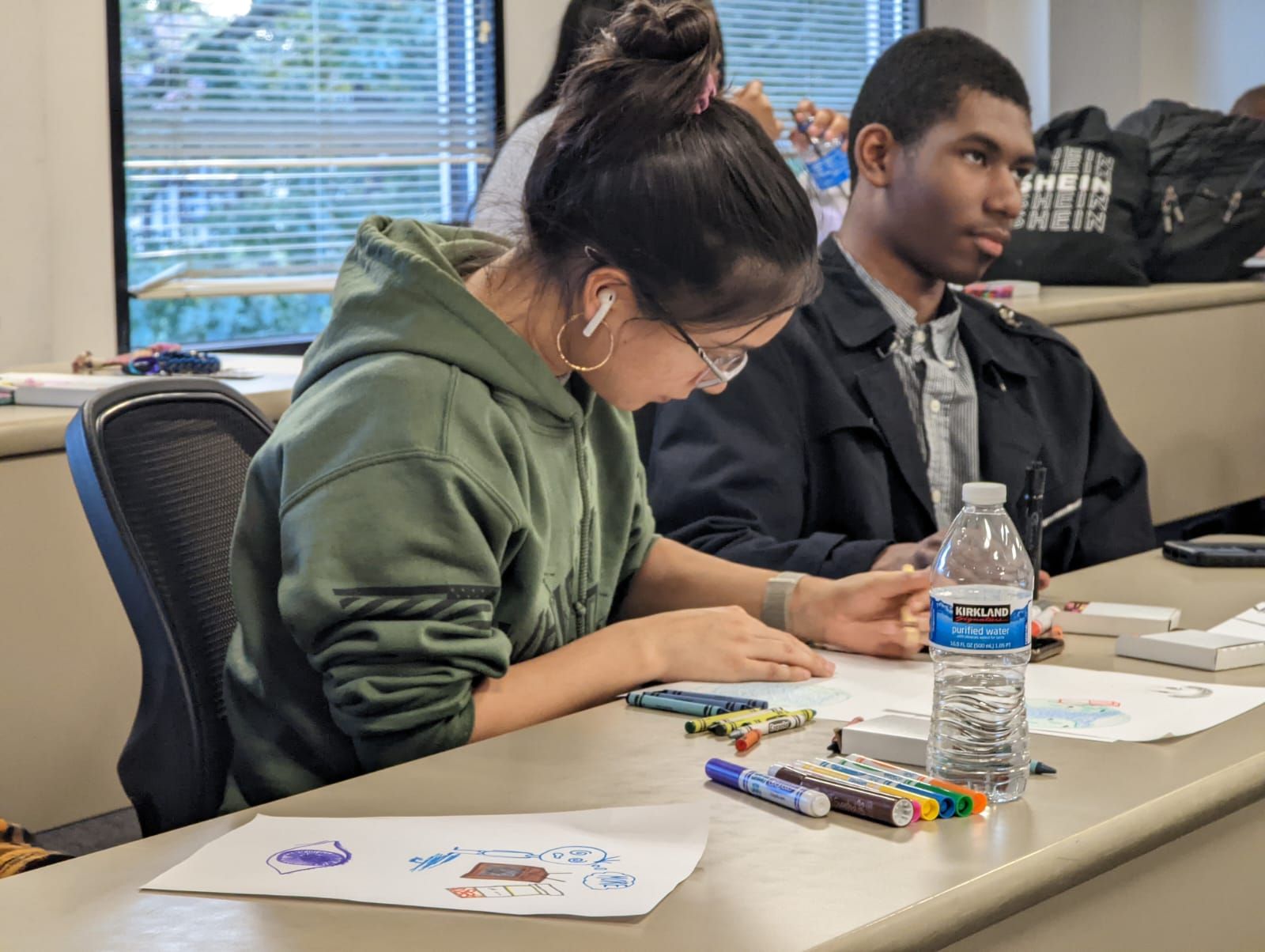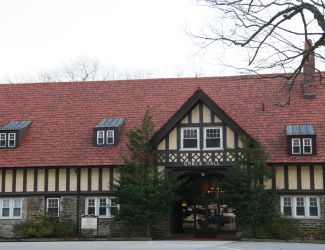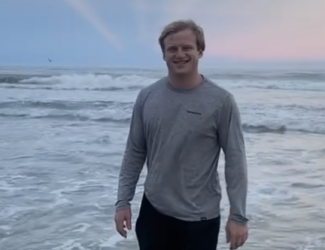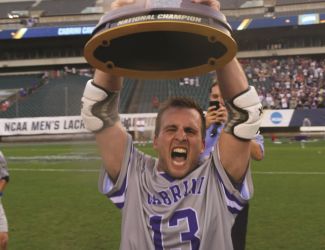Cabrini students gathered for Therapeutic Recovery Night, hosted by Cabrini’s Social Work Club, to listen to the addiction recovery story of a speaker who, as is the case in many addiction recovery stories, wished to remain anonymous. Hosted on Sept. 28, the guest speaker, an intern with Colligate Recovery at Cabrini, facilitated conversations with students while they expressed through arts and crafts what addiction recovery means to them.
An addiction story
In 2018, the speaker was introduced to a prescription painkiller called oxycodone. He recalled feeling calm and relaxed and said took oxycodone because of peer pressure and his discontent with life.
He drew a dopamine graph showing how levels heighten and drop back down to a baseline within 30 minutes. The more he took the drug, the more his dopamine response intensified. After a spike in dopamine, he would crash down and start feeling sluggish.
“My feet literally feel like cinder blocks, I can’t even pick them up, I feel heavy, lethargic,” he said, recalling the drug’s effects.
He explained the decision-making of someone with an addiction. As a person with addiction becomes more tolerant of drugs, the drugs become a survival mechanism. He illustrated a similar example; when you are dehydrated, you start mindlessly drinking water until you are full. While this happens, your brain starts pumping out dopamine because, through that action, you satisfied a primal need. Over time, the drug becomes an important need like food and water. People with an addiction don’t do drugs because they lack self-control; they do it because it’s part of a physical reaction.
He used to be surrounded by triggers, dopamine, destructive behavior, and reckless decisions. Blinking his eyes; going to North Philadelphia, where he got his drugs; or suddenly seeing an old friend would trigger him. His palms would sweat and he would start craving oxycodone. He would get clean for a couple of weeks, then relapse again.
On Oct. 24, 2020, he couldn’t afford oxycodone, so he bought a bag of heroin instead; then he overdosed at his parents’ house. His father found him in the bathroom and called 911. When EMTs came, they administered Narcan and he was put into the ambulance.
“I’ve been running for years and I’m killing myself and I just can’t do this anymore,” he recalled.
Inside the ambulance, he surrendered. In recovery, surrender is the moment a person admits to themself they are powerless over drugs and can’t continue on with their addiction. He received therapy and detoxed at a treatment center for 30 days. He later moved to a sober living home and started going to Narcotics Anonymous, NA, meetings.
“Today I have the ability to think about how I can be of service to someone else,” he said.
He is now a graduate student studying social work.
Draw it out
Before his speech, students expressed what addiction recovery meant to them through drawings. A’Niyah Stilis, junior psychology major, said recovery is a place where people get help when feeling overwhelmed by substances, gambling, or anything else. It is when a person realizes that they have a problem and takes steps toward a solution. Stilis’ father dealt with alcohol addiction after losing his own father.
“He was in a euphoric state to the point where he didn’t even notice that he was drinking just to numb away his pain,” Stilis said.
Stilis thinks addiction is a state of mind and is difficult to overcome. She enjoyed the Therapeutic Recovery Night because of the powerful conversations and the way art was turned into a form of therapy. She believes this event will show her how to address addiction in her own family and spark their own conversations.
“Most people just don’t talk about their addiction and tend to hide it, or they just pretend like, ‘Oh they’re doing drugs, we can’t help them,’” Stilis said.
Stilis believes we can help people going through addiction, even if they deny it, and said our society must stop ignoring addiction.
Jahmir Grant, freshman education major, said addiction recovery means people with addiction stop giving others the expectation that they will continue going down that road.
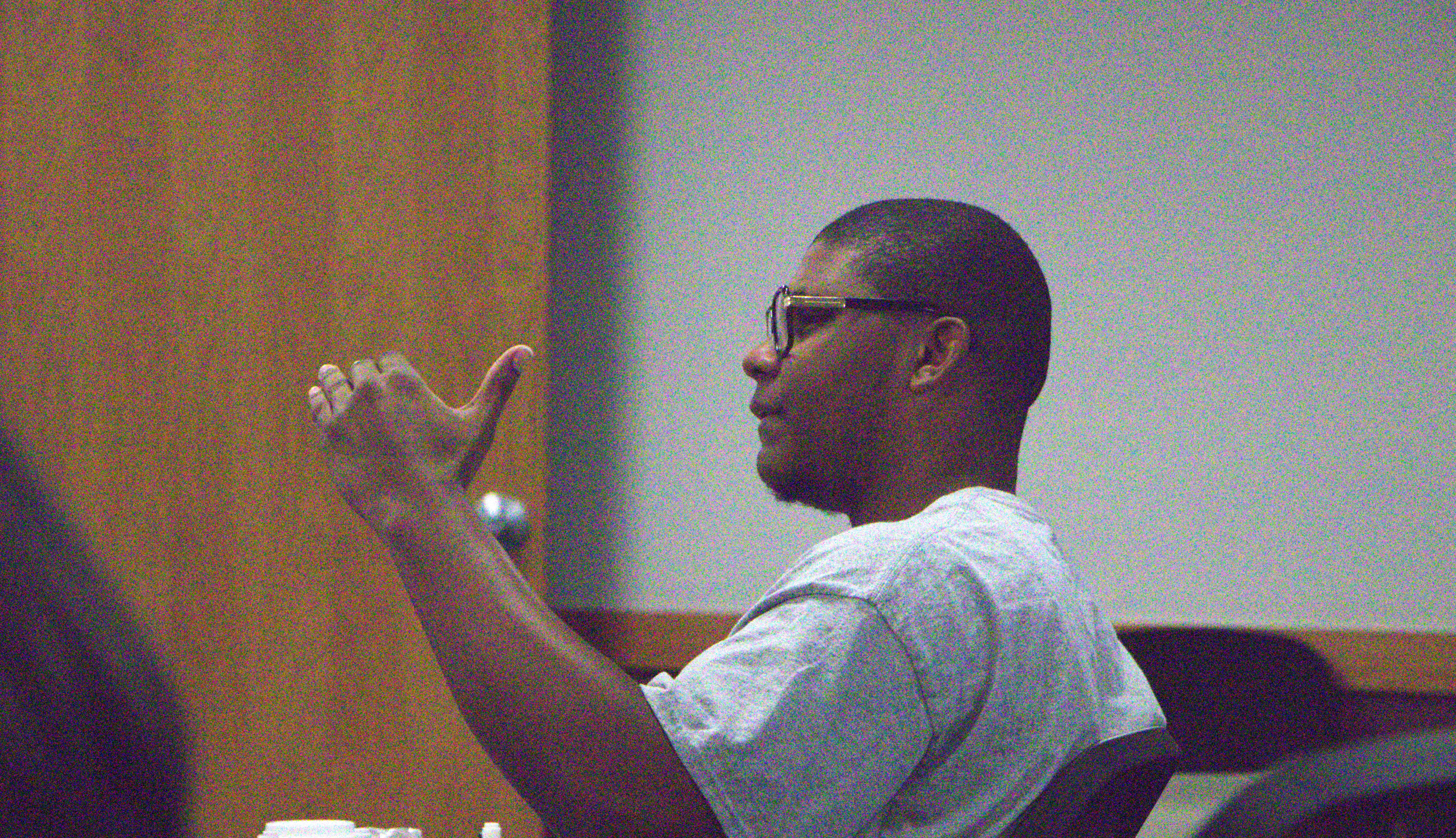
Grant said, “I get to understand and learn something that is essentially going to help a lot of people.”
The guest speaker said addiction recovery to him means everything. He believes recovery has changed his life for the better.
“It’s salvaged all the relationships with my family and friends,” he said.
He believes that addiction recovery helped restart his life and hoped this event would dispel common myths about addiction. He wanted students with family members struggling with addiction to learn that the reason why they act irrationally is that addiction is an illness beyond their mental control.
“The addict is not a bad person that’s trying to be good. It’s a sick person who is trying to get well,” he said.
Social Work Club
The Social Work Club created this event to end the stigma of addiction and to advocate for addiction recovery. The club wants to make space for students to talk about societal issues and bring awareness to them. Its goal is to educate students and support the local community.
Mariana Cruz-Sanchez, junior social work major, psychology minor, and president of the Social Work Club said, she hoped this event would create a safe place for students to express themselves.
“My hope as president of the Social Work Club is to try and get students involved in matters that are important to them,” Cruz-Sanchez said.
If you or someone you know on campus needs support, Collegiate Recovery hosts weekly meetings on Tuesdays from 2 to 3 p.m. at Grace hall room 247.


